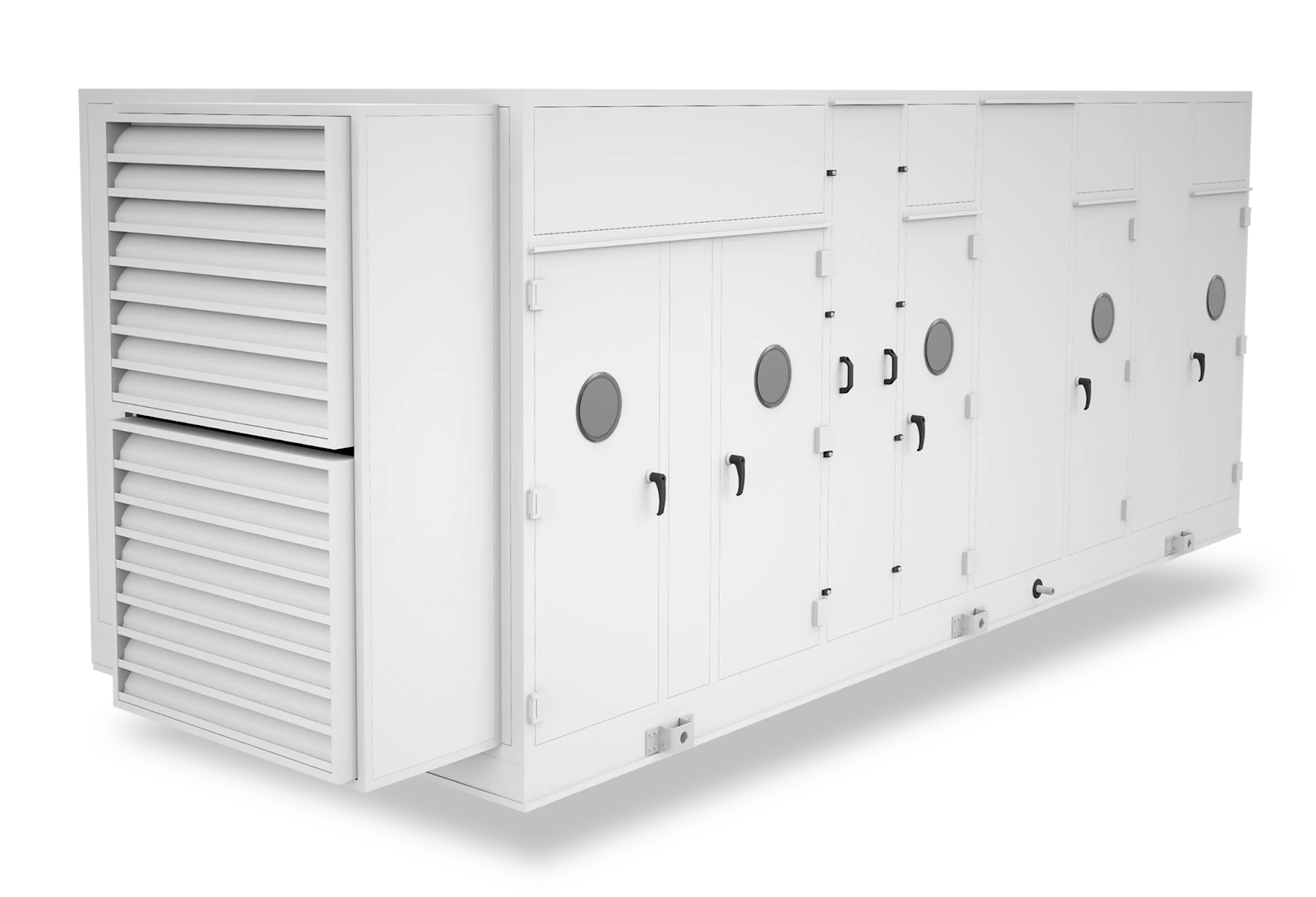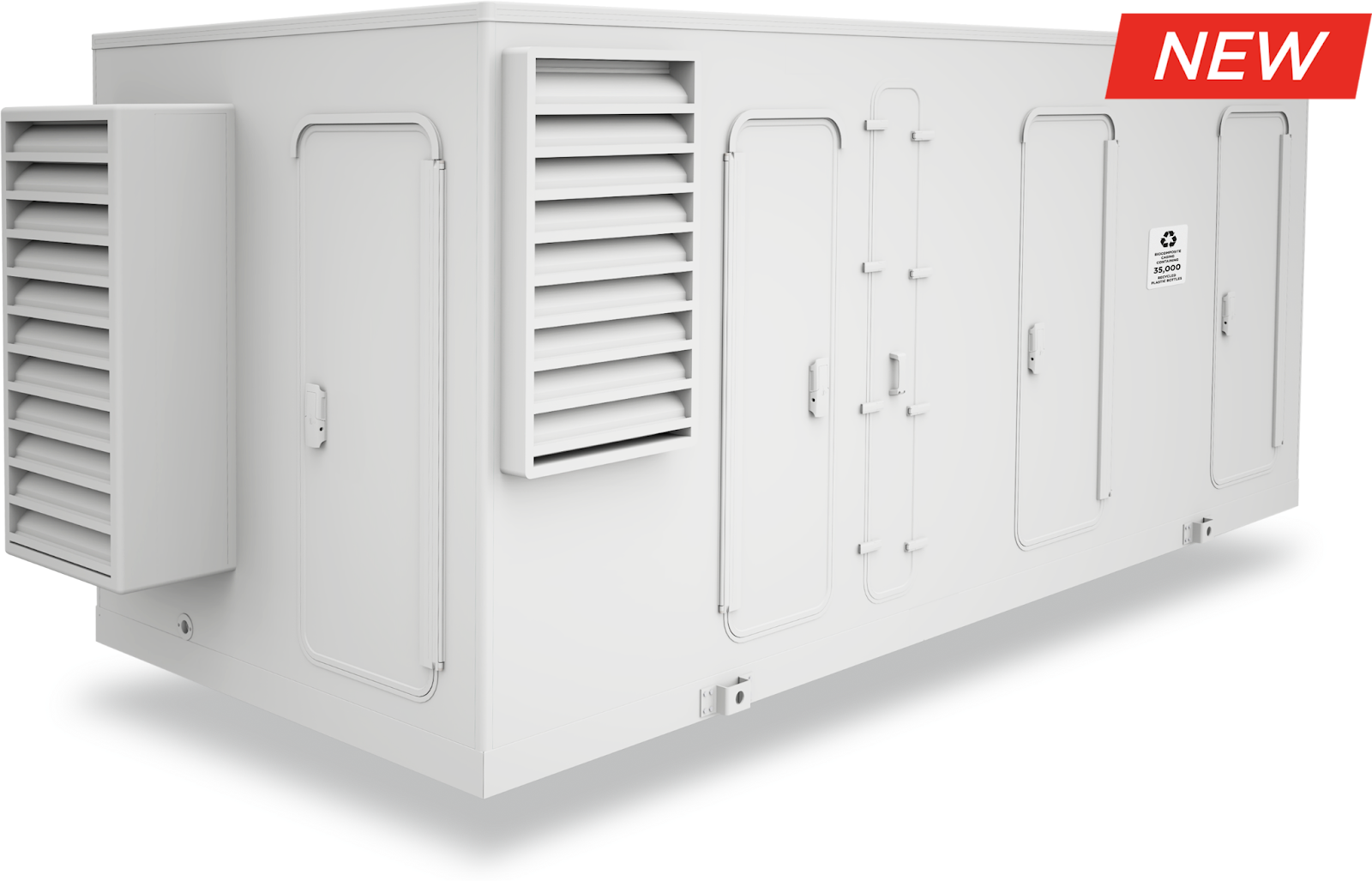In 2011, AnnexAir was the first company in the world to design and manufacture the infrastructure of Thermo-composite HVAC casings made of composite technology instead of steel. Eight years later, they released a new design, Biocomposite casings, a new first in the industry for an efficient, light-weight design made of recycled plastic bottles and 100% metal-free.
According to an article from HVAC Informed, the bio-composite casings took about nine years to manufacture. AnnexAir President François Lemieux has the ambition to modernize the industry and jumpstart efforts to make HVAC more eco-friendly, according to the article.
The fist design, Thermo-composite, was forged of welded thermal break aluminum framing. The name thermo-composite can be concluded to derive from the term “thermo-plastic composites.” According to Ensinger, these are also called fiber-reinforced plastics (FRP), and they typically factor out to a continuous fibre reinforcement and a matrix material made of thermoplastic. The thermal break insulation system integrated into its aluminum frame “breaks,” or interrupts, the transfer of thermal energy entering or exiting the casing, firmly eliminating heat loss.

Image source: AnnexAir
According to AnnexAir, the thermo-composite model above has insulation constructed from 47,000 recycled plastic bottles.
In 2020, the Biocomposite casing design was launched. This is the first HVAC casing design in the world to be 100% metal-free. Biocomposite, or structural composites consisting entirely of biological components, are made of green “stiff-core” insulation with recycled plastic bottles. All chemistry procedures used in the making of these casings were eco-friendly and the structure is built from glass-fibre in place of traditional metal sheets. This design is insulated with 35,000 recycled plastic bottles.

Image source: AnnexAir
One special feature of both the thermo-composite and biocomposite designs is their high resistance to corrosion. According to a case study on the sustainability of the designs, “Thermo-composite panels are finished with a superior PVDF 3000-hour salt spray to resist any form of corrosion, even when the unit is exposed to a high volume of sea salt air.” This makes the designs perfect for any climate. They are rust-free, condensation-free and corrosion-free for 15 years of high performance operation.
Not only are these designs utilizing recycled plastics, a huge step in HVAC sustainability, but they also cut down energy costs in many ways. They are extremely light-weight, up to 40% lighter than traditional steel casings according to the case study, resulting in less energy for installation and operation. The high insulation and panel thickness (2-inch panels and R14 insulation) allows for high thermal energy retention.
A company like AnnexAir will inevitably be more sustainable in every way because it is a part of their mission to do so. They will ensure the correct, most efficient equipment and materials because every detail matters, and this confidence and reliability is the exacerbating element of sustainability that if adopted by general practice could have an astounding effect on the entire HVAC industry.
Northrich Co. trusts AnnexAir for their consistency and proficiency in HVAC casing technology. We want only the best for our customers and can guarantee a high reward investment in thermo-composite and biocomposite casings.
To learn more about HVAC casing options or the specifications to incorporate them into new or existing systems, contact Northirch Co. at 216-581-4750 or go to www.northrich.com.
